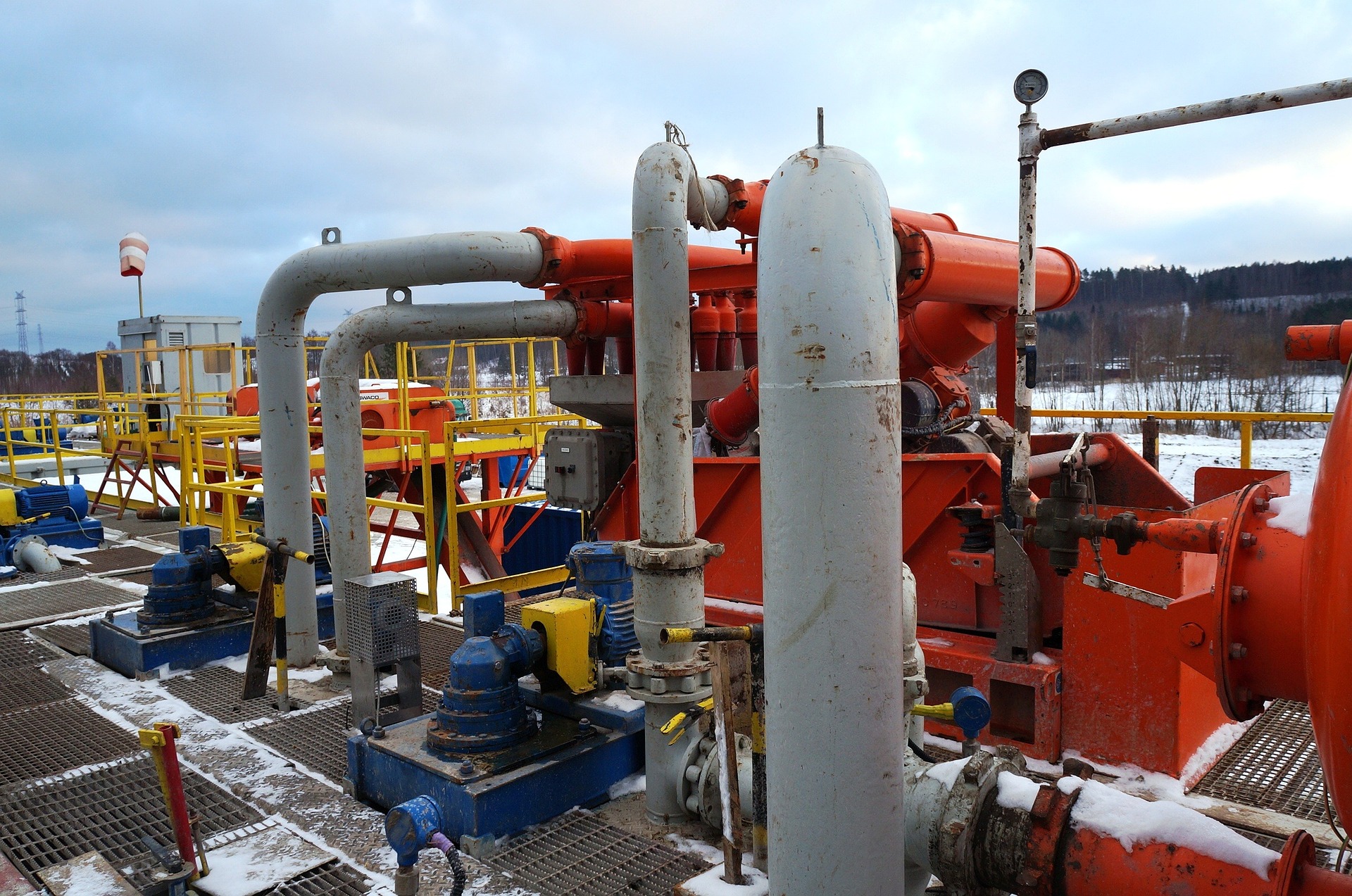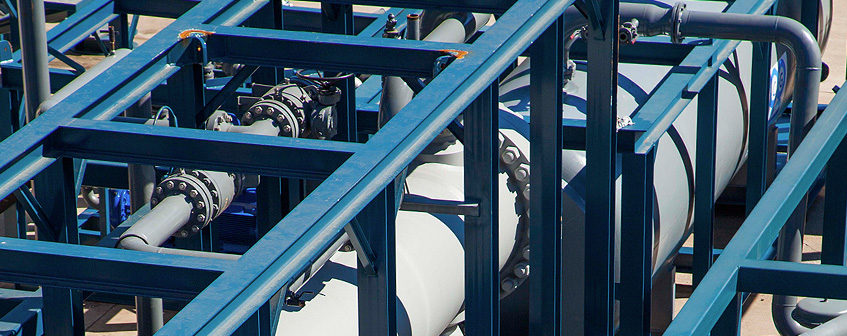Superior Rentals midland: local company profile for field managers
A Comprehensive Overview to the Numerous Sorts Of Oil Field Equipment and Pipeline Equipment Available
The oil and gas sector depends greatly on specific equipment for efficient extraction and transport. Numerous kinds of equipment, from drilling rigs to storage space containers, play essential roles in this complicated procedure. Each tool serves unique functions that add to overall functional success. Comprehending these components is necessary for any person entailed in the market. As the market progresses, so too do the technologies that sustain it. What innovations are on the horizon?

Drilling Rigs: The Backbone of Oil Exploration
Drilling rigs function as the crucial equipment in the domain name of oil exploration, enabling business to accessibility hydrocarbon gets hidden deep beneath the Planet's surface. These rigs come in numerous types, including land rigs, offshore rigs, and mobile devices, each designed to run in specific atmospheres. Outfitted with sophisticated modern technology, drilling rigs can penetrate geological developments with precision, ensuring effective source removal. The architectural stability and operational capabilities of these rigs are important, as they should hold up against extreme conditions and substantial stress. Furthermore, the selection of a boring rig impacts the total project cost and timeline, making it an essential consideration for oil firms looking for to maximize their exploration initiatives and make the most of performance in their procedures.
Pumps: Necessary for Liquid Movement
In the oil extraction process, the role of pumps is significant, helping with the movement of fluids throughout various phases of manufacturing. Pumps are vital for delivering unrefined oil, water, and various other fluids from below ground tanks to the surface area and after that via pipelines to refineries. They can be found in different kinds, consisting of centrifugal, favorable variation, and submersible pumps, each offering certain functions based upon the fluid features and operational requirements. Centrifugal pumps are typically used for their performance in high-flow applications, while positive variation pumps master managing thick liquids. The selection of pump effects total performance, operational safety and security, and maintenance costs. Correct choice and upkeep of pumps are essential for maximizing manufacturing and minimizing downtime in oil field procedures.
Valves: Controlling Flow and Pressure

Shutoffs play an important function in managing the flow and stress of liquids within oil areas and pipelines. Numerous sorts of valves serve distinct applications, each designed to meet details features basic for efficient procedure - Superior Rentals midland. Recognizing the features and uses of these valves is vital for maximizing system performance and safety
Kinds of Valves
Important components in oil field operations, valves play a vital role in managing the flow and stress of fluids within pipelines and devices. Various kinds of valves are utilized to meet the varied needs of oil and gas manufacturing. Usual kinds include entrance valves, which offer a straight-line circulation and very little stress decline; globe valves, recognized for their strangling capacities; and round valves, recognized for their quick on/off control. Furthermore, check shutoffs prevent backflow, while butterfly valves offer a light-weight option for controling circulation. Each shutoff kind is created with specific materials and configurations to stand up to the severe conditions typically found in oil fields, making sure reliability and efficiency in operations. Comprehending these types is critical for reliable system management.
Valve Applications and Features
While various sorts of valves serve unique purposes, their primary applications focus on controlling flow and stress within oil and gas systems. Shutoffs such as gate, world, and round valves regulate liquid motion, ensuring peak efficiency and safety. Gateway valves are generally made use of for on/off control, providing very little flow resistance. World valves, on the various other hand, offer accurate circulation law, making them suitable for throttling applications. Round shutoffs are favored for their fast procedure and tight sealing capabilities. Furthermore, pressure safety valve are vital for avoiding system overpressure, safeguarding devices stability. Generally, the proper selection and application of shutoffs enhance functional effectiveness, guaranteeing the trustworthy transport of oil and gas through pipes and processing facilities.
Compressors: Enhancing Gas Transportation
Compressors play an important duty in the effective transportation of gas, guaranteeing that it relocates efficiently with pipelines over cross countries. These gadgets enhance the pressure of gas, allowing it to get over rubbing and altitude adjustments within the pipeline system. Furthermore, compressors facilitate the balancing of supply and need, suiting fluctuations in intake and production rates. Various kinds of compressors are used in the industry, including centrifugal, reciprocating, and rotary screw compressors, each offering distinctive benefits based on the functional requirements. Normal maintenance of these compressors is essential to make best use of efficiency and decrease downtime, inevitably adding to a reliable gas transport network. Their important function highlights the significance of compressors in the general oil and gas infrastructure.
Storage Tanks: Safe and Effective Liquid Management
Effective transportation of gas relies upon various support group, one of which is the appropriate monitoring of storage space tanks. These tanks play a necessary duty in securely consisting of fluids, ensuring that functional efficiency is preserved while decreasing environmental risks. Constructed from long lasting materials, they are created to hold up against high stress and harsh elements. Appropriately sized and tactically located, tank facilitate the smooth flow of gas and other liquids, stopping bottlenecks in supply chains. Regular upkeep and surveillance are imperative to discover leakages or architectural issues, advertising safety and compliance with regulative criteria. Eventually, the efficient management of tank is important for the overall integrity and dependability of the oil and gas sector's liquid handling systems.
Pipeline Solutions: Infrastructure for Transport
Pipeline systems serve as the foundation of the oil and gas industry, helping with the effective transport of hydrocarbons over substantial distances. These systems contain different elements, including pipelines, shutoffs, pumps, and compressors, all diligently created to guarantee smooth circulation. The materials made use of in pipeline building and construction, usually steel or high-density polyethylene, are selected for toughness and resistance to rust. Pipeline networks can cover throughout land and water, linking manufacturing websites to refineries and see here circulation. In addition, progressed technology allows real-time surveillance of flow rates and pressure levels, improving operational performance. The critical positioning of these pipelines reduces environmental impact while taking full advantage of source access, therefore playing an essential duty in meeting power demands globally.
Safety And Security Equipment: Guaranteeing Worker and Environmental Management
The operation of pipeline systems, while necessary for energy transportation, likewise provides considerable safety difficulties for workers and the environment. Security devices plays a substantial role in reducing these risks. Personal protective devices (PPE) such as helmets, gloves, and non-slip footwear safeguards workers from physical risks. Additionally, gas detection systems monitor for leakages, making certain that dangerous compounds do not posture a danger to employees or the bordering environment. Emergency closure systems are necessary for rapidly stopping operations during a situation, protecting against possible calamities. Spill containment materials, including absorbents and obstacles, are fundamental for minimizing ecological effect. In general, buying comprehensive safety equipment is essential for keeping operational Get More Information integrity and safeguarding both employees and the environment in the oil and gas field.

Frequently Asked Concerns
How Do I Choose the Right Oil Field Equipment for My Project?
Choosing the best oil field tools entails reviewing task requirements, budget plan restrictions, and operational needs. Consider variables such as tools reliability, compatibility with existing systems, and the vendor's credibility to ensure peak performance and security.
What Are the Maintenance Requirements for Oil Field Equipment?
Upkeep requirements for oil area devices include routine examinations, lubrication, and timely repair services. Operators should also follow manufacturer standards, monitor performance metrics, and warranty compliance with safety guidelines to enhance long life and efficiency.

Just How Can I Make Certain Conformity With Environmental Laws?
To ensure conformity with environmental laws, companies need to perform normal audits, implement best techniques, purchase training, preserve appropriate paperwork, and stay upgraded on regulation (Superior Rentals reviews). Collaboration with ecological firms can likewise enhance adherence to laws
What Is the Average Life-span of Pipeline Equipment?
The average lifespan of pipeline devices normally ranges from 20 to half a century, depending upon aspects such as worldly high quality, ecological problems, and upkeep practices. Regular inspections can greatly influence durability and operational efficiency.
Exactly how Do I Safely Transport Oil Field Equipment to Remote Locations?
Carrying oil area devices to remote locations calls for careful preparation, mobile tower crane consisting of path evaluation, securing permits, using appropriate vehicles, and making sure safety methods are complied with. Correct training and interaction among crews are crucial for successful transportation.